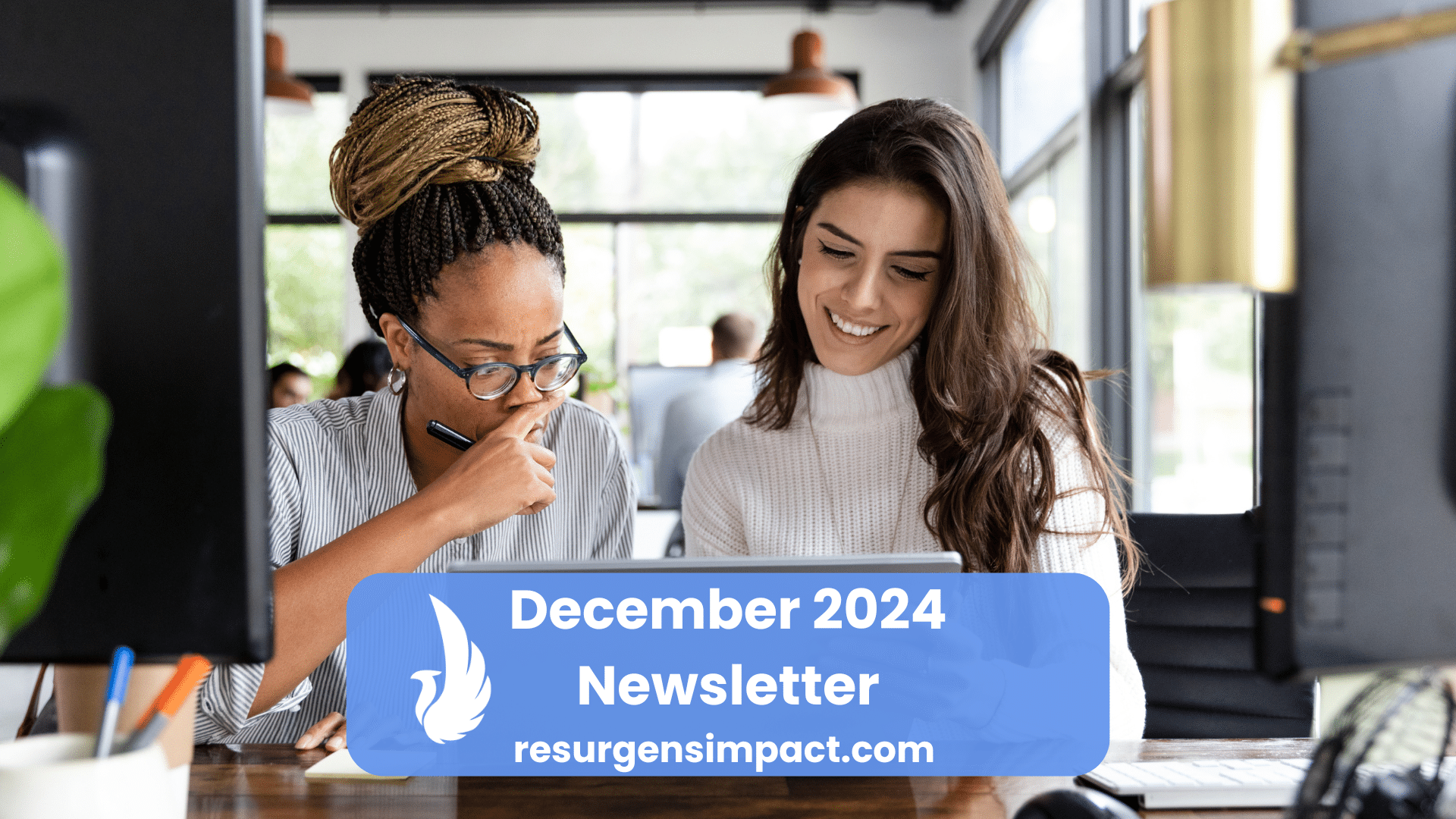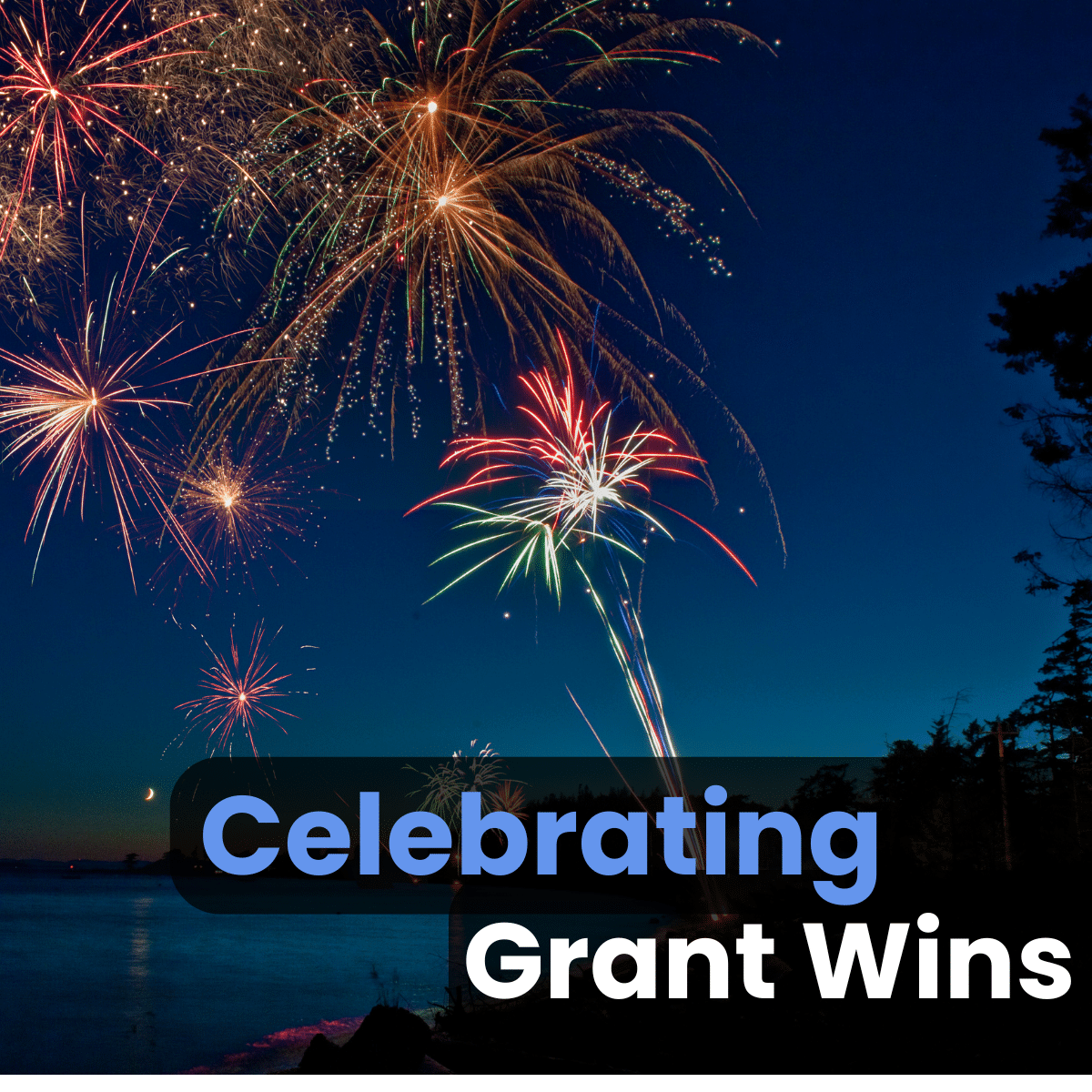
Congratulations to:
Atlanta Victim Assistance Cousins Foundation, CJCC FVPSA, CJCC VOCA
Decatur Cooperative Ministry John and Mary Franklin Foundation, Publix Super Markets Charities
Entryway James M. Cox Foundation
Esperanza United Minnesota Department of Public Safety, Hugh J. Anderson, Otto Bremer Trust, OVW Fiscal Year 2024 Transitional Housing Assistance Grants for Victims of Domestic Violence, Dating Violence, Sexual Assault and Stalking Program
Family Crisis Center of WDCC Food Lion Feeds Charitable Foundation
Georgia Coalition Against Domestic Violence John & Mary Franklin Foundation, Ronald W. Naito Foundation
Good Shepherd Clinic Georgia Charitable Care Network, Clayton County Commissioners, Jesse Parker Williams Foundation
L’Arche Atlanta Katherine John Murphy Foundation
L’Arche Portland Oregon Community Foundation, Robert and Mary Jane Smith Foundation
Leap Year Inspire Brands, SPARK grant, John and Mary Franklin Foundation, Richard C. Munroe Foundation, Harland Charitable Trust
National Domestic Workers Alliance William Penn Foundation, Morris and Gwendolyn Cafrtiz Foundation, Kini Fund, Bread and Roses, Meyer Foundation
Southern Fried Queer Pride Queer Mobilization Fund, AEC Trust
Sur Legal Ronald W Naito MD Foundation, AEC Trust
The Study Hall Katherine John Murphy Foundation, Delta Community Credit Union Philanthropic Fund, Kiwanis Foundation of Atlanta
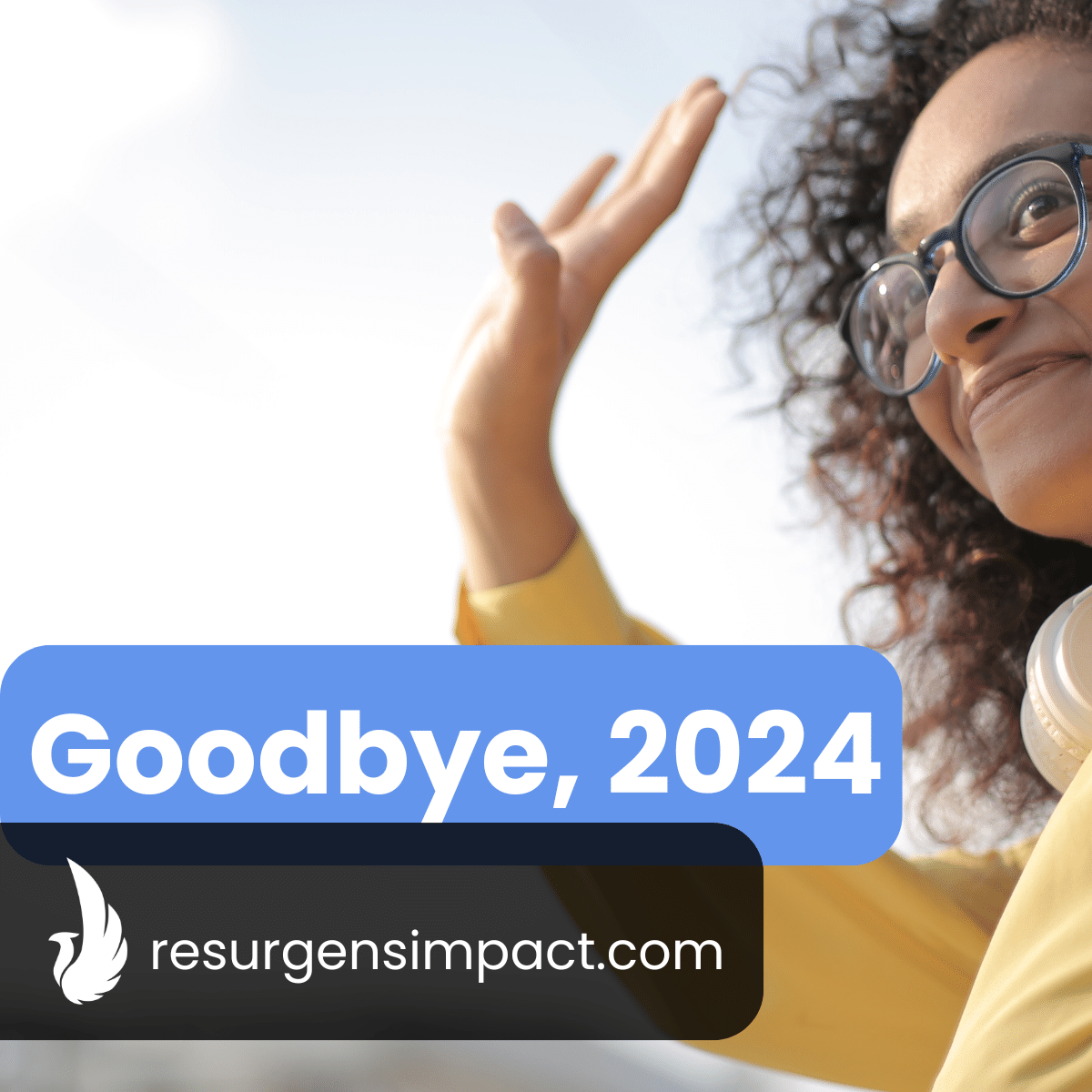
Goodbye, 2024!
It’s been a tough year for many, but we still want to celebrate 2024!
Here’s what we are most proud of:
- Georgia Coalition Against Domestic Violence was one of 361 organizations that received a Yield Giving award of $2M!
- Cherokee Family Violence Center was awarded a FVPSA Demonstration grant. This two-year grant will support critical programs to protect and empower families affected by domestic violence. The first year of funding, totaling $347,727, will help launch new initiatives focused on providing specialized services for both abused parents and their children.
- Our team and clients crushed the Office on Violence Against Women grant season this year. We helped secure 11 grants from OVW for our dedicated clients working to end domestic violence and sexual assault.
We are celebrating these amazing wins and the impact they will have on people and communities. We’re also planning ahead for 2025 and expected sea changes in philanthropy and government funding.
While we think it’s important to plan ahead, we’re also prioritizing rest. RIC will be closed December 25-January 1, and many of our staff are taking additional days off. We hope that you are also able to take time with your loved ones this holiday season.

Office Hours Takeaways: Impact Statements
- Identify and Engage All Stakeholders – Clearly define who is impacted by your work, including all relevant demographics and stakeholders. This includes understanding the geographic areas you serve and ensuring that the stories reflect the diverse experiences of these groups.
- Highlight Achievements with Metrics and Testimonials – Detail what has been accomplished by showcasing specific goals met, metrics achieved, and changes in behavior or knowledge. Use quotes, stories, and testimonials to add a personal touch that resonates with your audience.
- Demonstrate Timely Milestones – Explain when significant milestones were reached and how you measured, evaluated, and adjusted your strategies throughout the year. This transparency helps build trust and credibility with your audience.
- Articulate the Importance of Your Impact – Clarify why your work matters to those you serve and those reading the report. Identify any gaps or unmet needs within the community to highlight areas for future focus.
- Quantify Your Reach and Influence – Provide concrete numbers on how many lives were impacted, including details on the number of teachers, students, parents, or professionals engaged. This data helps quantify your organization’s reach and influence.
Focusing on these key aspects will ensure that your year-end impact statements inform and inspire action among your stakeholders.
Additional Resources
- Communicating Program Impact in a Grant Proposal
- Persuasive Storytelling for Grant Writers
- Storytelling for Grantseekers
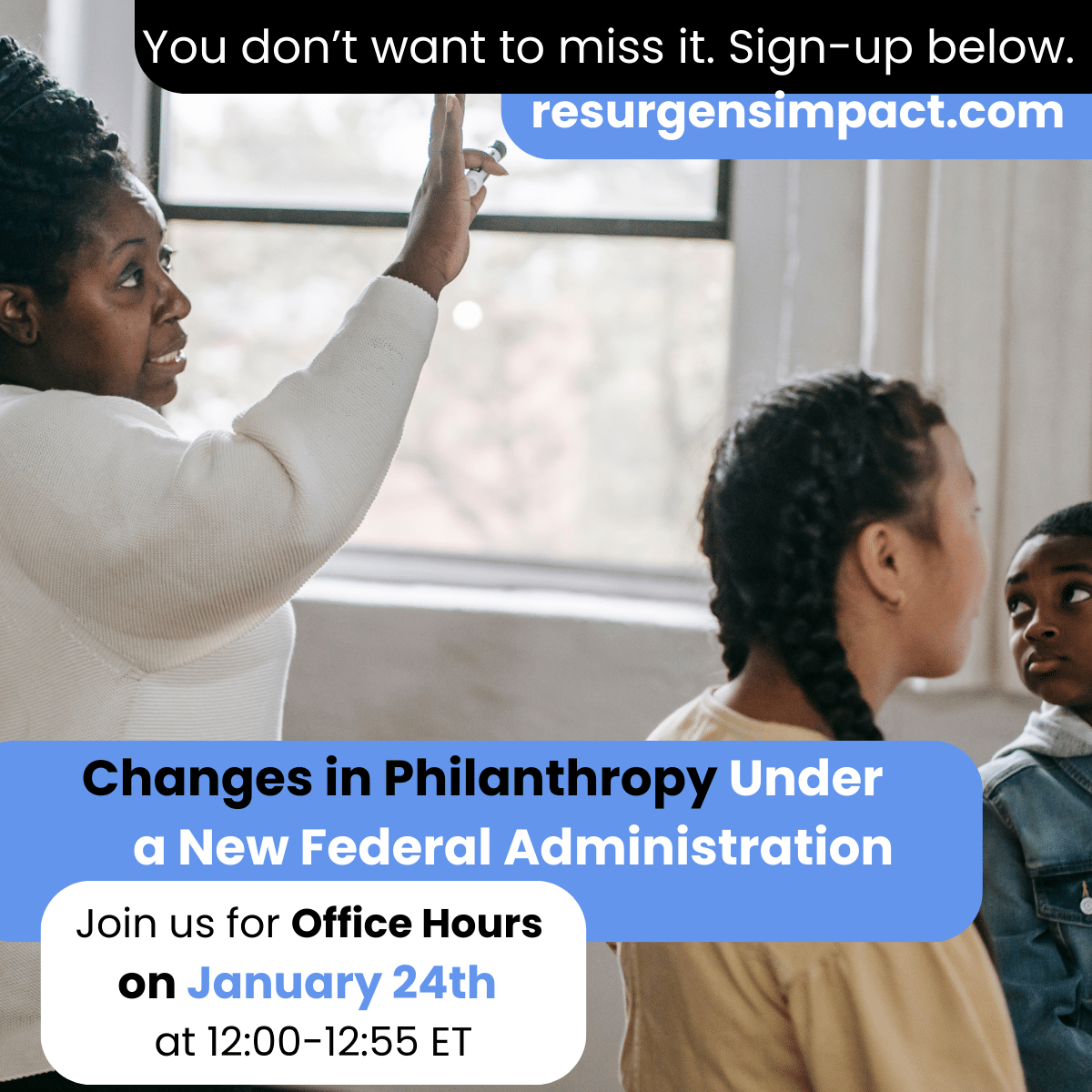
RIC Office Hours: Changes in Philanthropy Under a New Federal Administration
Complete Your Registration Here
Join our next Office Hours event on January 24th, from 12:00 to 12:55 PM EST for an engaging session: Changes in Philanthropy Under a New Federal Administration.
Resurgens Impact Consulting will dive into how shifts in federal policies and priorities could reshape the philanthropic landscape. This interactive discussion will cover:
- Emerging trends
- Funding opportunities
- Strategies to adapt to policy changes and maximize grant success
Don’t miss this opportunity to bring your questions and gain actionable insights!
Register today: January Office Hours
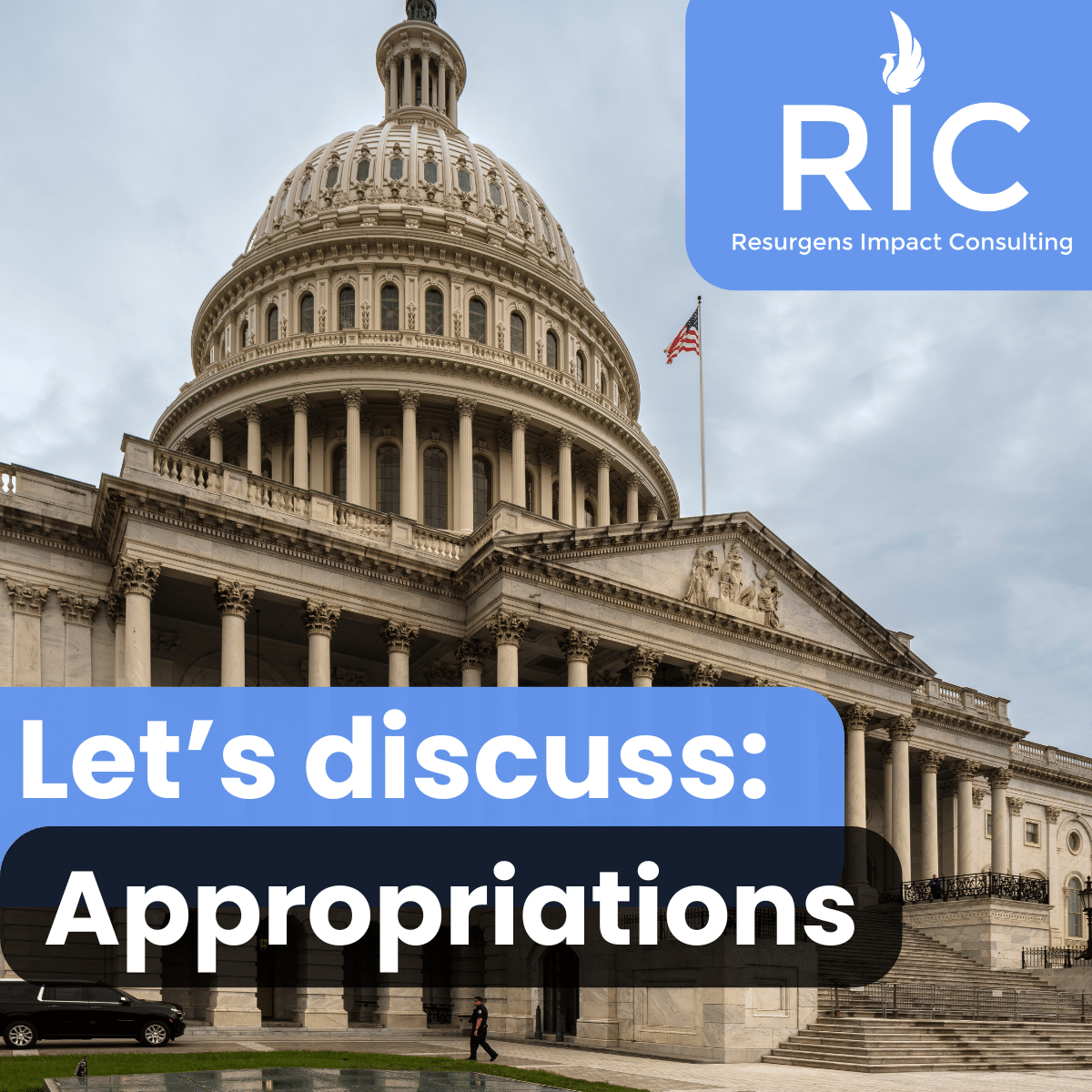
What Are Appropriations?
We’re thinking ahead to 2025 and wanted to start the conversation about Congressional Appropriations (formerly known as earmarks). Congressional Appropriations started back up in 2021 after falling out of favor during the Tea Party era, and they are gaining popularity with elected officials and the public alike.
What you need to know
Appropriations are kind of like a federal grant. Appropriations are all of the financial obligations and expenditures made by Congress. They are better known as “Community Project Funding” (House) and “Congressionally Directed Spending” (Senate).
Organizations must apply to one or more members of the U.S. House or to one or both Senators. Who you apply to probably will depend on the scope of the project. Each Congressperson can pick up to 15 projects to request, and Senators get unlimited requests, and selected projects advance through the congressional budgeting process.
Applicants can only submit projects under certain federal budget accounts. If we can’t find a project that fits within these accounts, it might not be the best potential source of funding, but we can always request a conversation with congressional staffers to get their guidance.
Since you would be applying for funding in the budget for the next federal fiscal year, the timeframe is October 1, 2025 to September 30, 2026. However, because of how long the process takes, the funds might not hit until summer 2026. Multi-year funding is rare, so it’s best to propose a project that can be completed within a year or less.
Think BIG! The average award for most accounts was $1.25 million, with a “sweet spot” range between $250,000 – $3.0 million.
Ideal types of projects that tend to get funded include:
- capital and infrastructure
- shovel-ready construction
- capacity building
- broad community scope
- major research
Community impact is critical. Focus on large-scale projects that will have a deep, long-lasting impact.
Please note that it’s possible that this process may end or be suspended in the next year or two. Under a Republican-controlled House and Senate, appropriations and CDS might vanish.
What you can do to prepare
If you’re a current client, contact your assigned Grant Consultant to discuss ideas for projects and plan ahead for 2025. Like most grants, we should discuss the project details and the budget, and make sure that they are well-aligned. Applications will likely be due in March-April, and could be announced as early as January.

